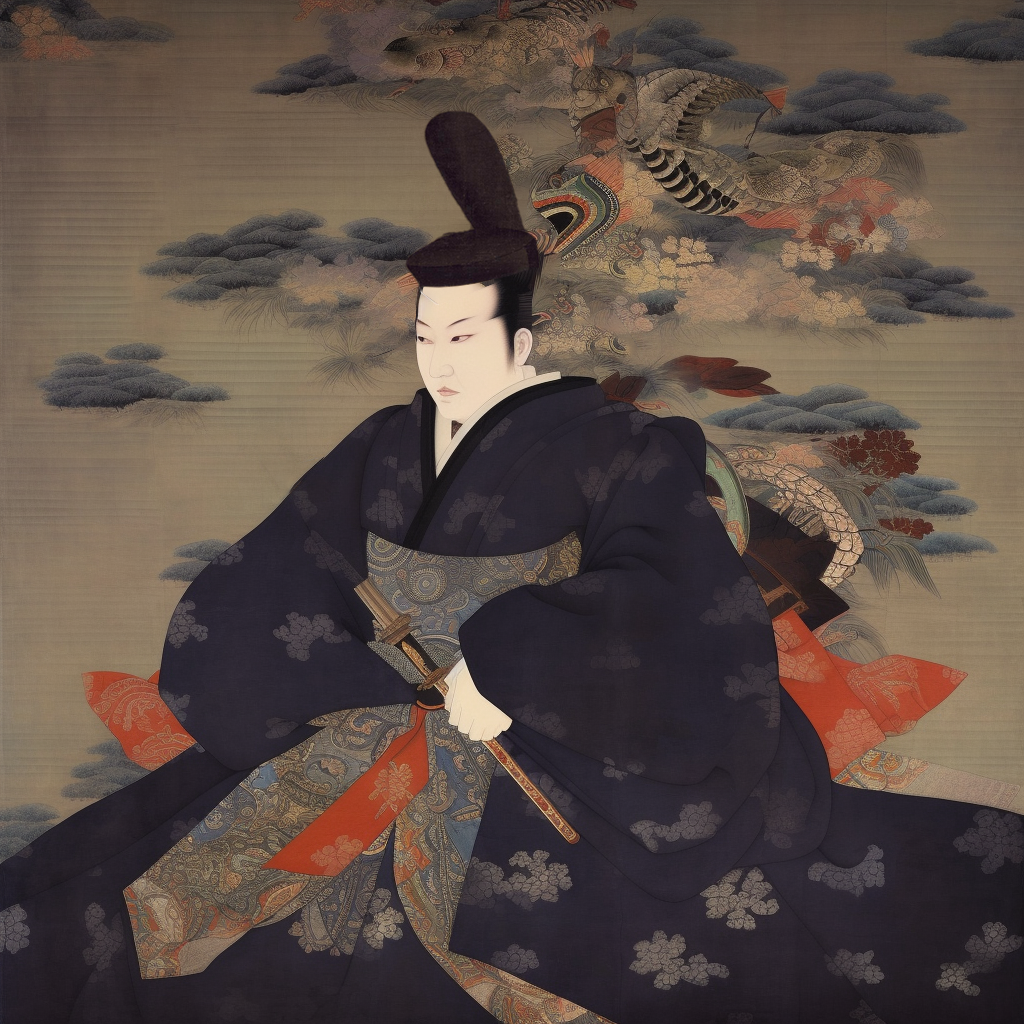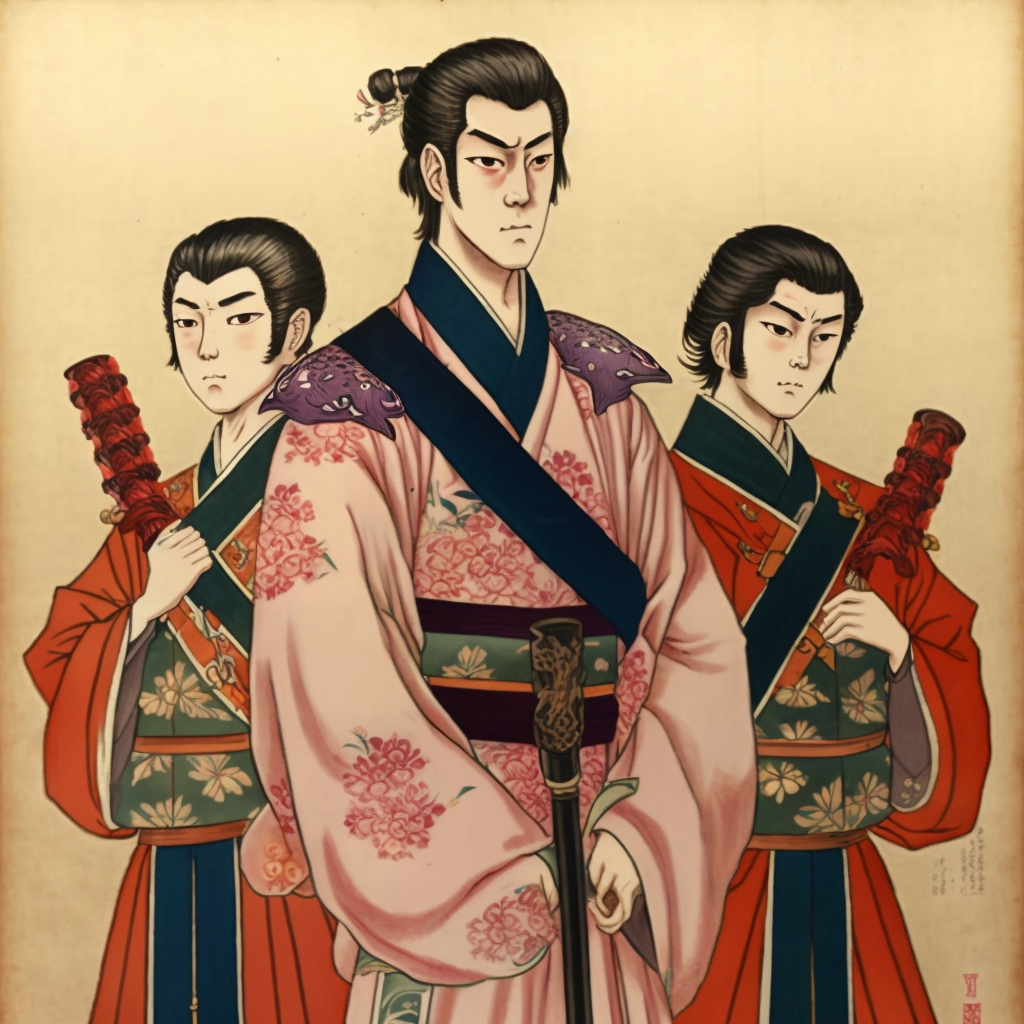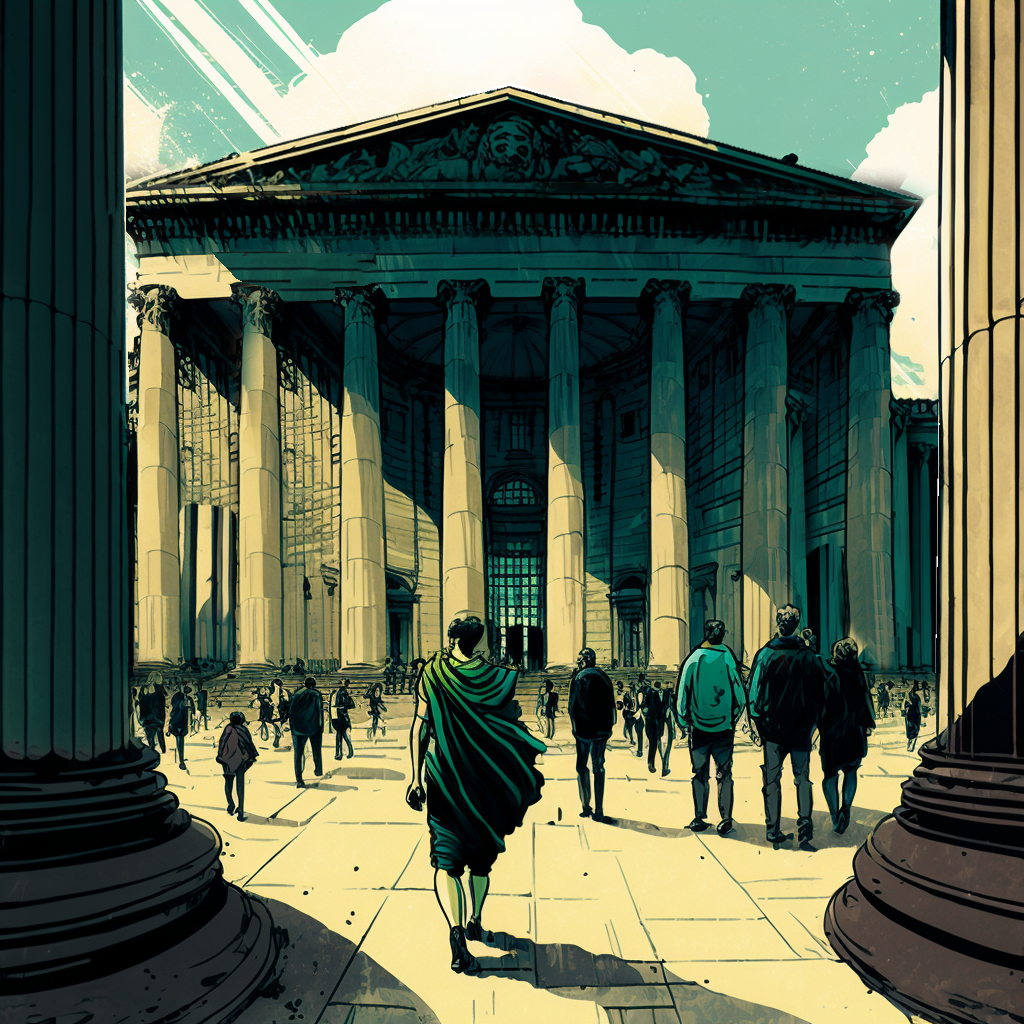Yoritomo Minamoto, born in Japan in 1147, is an iconic figure in Japanese history and a pioneer who left his mark on the samurai era. As founder of the Kamakura shogunate, he played a key role in establishing a new political and military system in Japan. In this article, we delve into the life of Yoritomo Minamoto, his rise to power, his achievements and his lasting legacy.
Yoritomo Minamoto’s rise to power:
Yoritomo Minamoto came from the prestigious Minamoto family, also known as the Genji, which was one of the most powerful samurai families in Japan at the time. Despite a difficult start marked by power struggles and internal conflicts, Yoritomo succeeded in unifying the Minamoto family factions and gathering powerful support.
In 1185, after a series of crucial battles, Yoritomo emerged victorious and became the first shogun of the Kamakura shogunate. This new system of government granted centralized power to the shogun, who was the supreme military leader, while the emperor was relegated to a symbolic role.
Yoritomo Minamoto’s achievements:
As shogun, Yoritomo brought about major political, military and social reforms that profoundly influenced medieval Japan. He consolidated his authority by establishing a network of regional governors, called shugo, who were responsible for local administration and the maintenance of order. This structure contributed to the stability and security of the Kamakura shogunate.
Yoritomo also instituted a strict code of conduct for samurai, known as the “Buke Shohatto”. This code governed the samurai’s social hierarchy, their duties to the shogun and the principles of loyalty, discipline and courage. These values influenced the samurai mentality and way of life for centuries.
Legacy and lasting impact:
Yoritomo Minamoto’s legacy is undeniably important in Japanese history. His establishment of the Kamakura shogunate laid the foundations for a political and military system that lasted over 150 years. The shogunate was marked by a period of relative stability and cultural development, with a strengthening of the samurai’s role in society.
In addition, Yoritomo’s reforms helped shape the ideal of bushido, the samurai moral code that emphasized honor, loyalty and courage. This ideal has endured beyond the samurai era, influencing Japanese values right up to the present day.
Yoritomo Minamoto also left an architectural legacy with the construction of the Tsurugaoka Hachimangu, an important Shinto shrine in Kamakura. This shrine was an important place of worship for the samurai and continues to be venerated today.



